When you think of raising chickens, your mind may immediately go to summertime when the birds are busy eating, scratching and running around in the sun. While there is no doubt that enjoying warm weather with your feathered friends is fun and rewarding for everyone involved, keeping chickens happy and healthy throughout all four seasons requires commitment and attention to detail.
The benefits of raising backyard chickens include providing fresh eggs for your family, adding natural fertilizer to your garden, controlling pests in your yard, and providing companionship. Taking care of chickens can also be a great learning experience for children who want to learn about animals and nature. With the right preparation, you can ensure that your chickens stay happy and healthy through the changing weather.
In this blog post, we’ll explore how chicken owners can adjust their care routine to meet the needs of chickens through every season – from roosters cheering at sunrise during springtime to thick coats keeping hens safe during winter nights. Read on if you want healthy and happy feathered friends year-round!
Winter Needs for Your Chicken Flock
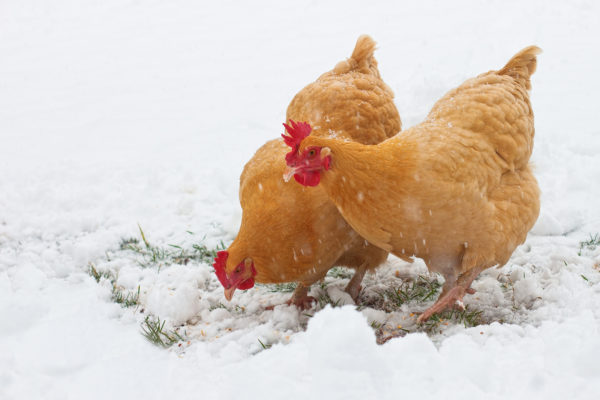
It’s no secret that winter weather can be brutal for any type of animal. When temperatures drop in winter, there are several things you need to consider for your chickens.
Winter Chicken Coop
In order to keep your chickens happy and healthy during the cold months, it is important to make sure they are protected from extreme temperatures. Make sure their coop is draft-free and provide plenty of extra bedding material such as straw for them to cozy up in.
You will need to provide them with enough space so they don’t get too crowded when trying to keep warm. You also need to ensure that the coop is properly insulated so your chickens don’t freeze and can stay comfortable in low temperatures.
And don’t forget about lighting- like all diurnal animals, chickens need daylight. So, ensure you have artificial lighting in order to keep them active during shorter days.
Need support building the right chicken coop for your needs? Check out our options here, and reach out to us anytime!
Keeping Chickens Safe
It is also important to keep an eye on predators during this time as they may be more likely to attack when food is scarce. Ensure their area is securely fenced and protected.
Feeding Chickens in Winter
In winter, your chickens’ diet should be adjusted in winter to include energy-rich foods such as mealworms or suet cakes. This extra nutrition helps hens retain heat and fend off the cold. Make sure that your chickens have access to plenty of food during this time as they are likely burning more calories in order to stay warm.
Make sure they have plenty of water during this time since they may not be able to access it all day due to cold weather conditions.
Finally, check on your flock regularly through the winter months and make sure no other animals are getting into their roosts or coops to eat their food; predators are not the only animals that may try to break into your coop! In times of food scarcity, other critters may go to greater lengths to take your chickens’ food.
Winter Egg Production
Winter can provide a much-needed break from egg production. Since hens require at least 14 hours of daylight in order to lay eggs, shorter days can significantly decrease egg production. Additionally, cold temperatures and high humidity can be detrimental to hens due to increased risk of frostbite, dehydration, and hypothermia.
Spring Considerations for Your Chickens
Spring is a time of renewal, and your chickens’ housing needs to reflect this season of growth.
Spring Chicken Coop
Be sure to check the state of your coop and make any necessary repairs or cleaning before the warm weather hits. Make sure you also change out any old bedding from winter that is contaminated with feces or mould.
Additionally, as days get longer and brighter, chickens need access to lots of fresh air and sunlight, so ensure that the coop has plenty of ventilation and windows for natural light.
Pests
Also, be aware that springtime brings more pests like flies which can spread diseases among your flock. Take steps now to prevent bug infestations by using natural pest repellents such as diatomaceous earth around their roosts and coops.
Feeding Chickens in Spring
Finally, hens may start to become more productive with their egg-laying during this time, so make sure to provide plenty of calcium-rich treats such as crushed oyster shells or mealworms. Ensure you provide your hens with high-quality feed and fresh bedding material such as straw or wood chips which will help keep them cool during the warmer weather.
Spring Egg Production
Spring brings warmer temperatures which can increase egg production. Additionally, longer days mean more time for chickens to roam and feed which can also lead to higher egg production.
However, the risk of parasites and bacteria is still present due to warm temperatures and humidity. Additionally, spring storms can be detrimental to hens due to high winds and hail.
Getting Baby Chicks in Spring
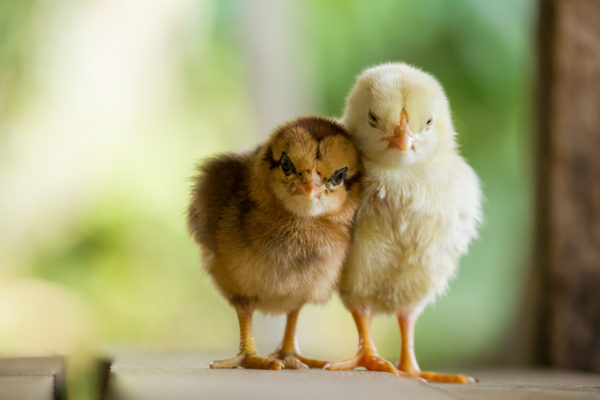
Springtime is a great time to get baby chicks as they will be able to adjust to the weather much better than older chickens. When getting chicks, it is important to consider the size of the coop and whether you need extra heat lamps or waterers. You should also make sure that the coop is properly sealed to protect the chicks from potential predators.
Where to Get Baby Chicks
When it comes to getting baby chicks, there are several options. The first is hatcheries. Hatcheries have a wide selection of chicks, including rare and standard breeds, as well as bantams. Hatcheries may also offer additional services such as vaccinations and shipping.
Another option is local feed stores. Many feed stores offer chicks seasonally, so you should call ahead to see if they have any available. You may also be able to find chicks at local farms or through online retailers.
What to Buy
When shopping for chicks, you will need to consider what type of chicks you want. Standard breeds such as Rhode Island Reds and White Leghorns are popular choices, but if you are looking for something more exotic, there are many other breeds available. You will also need to consider what feed to purchase, as well as any necessary equipment such as a brooder, heat lamp, and bedding.
How to Care for Baby Chicks
There are a few things you should keep in mind. First, you will need to make sure that the brooder is kept at the proper temperature for the type of bird you have. This can be done by using an adjustable heat lamp and adding or subtracting bedding depending on the temperature.
You will also need to make sure that the chicks have access to feed and water at all times. Feed should be kept fresh and replaced regularly, while water should be changed daily and kept clean. Finally, you will need to make sure that the brooder is sanitized regularly to prevent the spread of disease.
Getting baby chicks in the spring is a great way to start or expand your backyard flock. By considering what type of birds you want, where you want to purchase them from, and how you will care for them, you can ensure that your birds will be healthy and happy. If you are looking for more information on raising chickens, check out our blog post here.
Summer Care Tips for Your Chickens
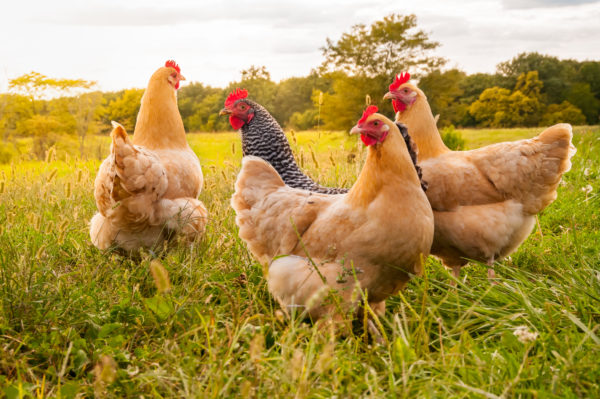
Finally- summer is here! Probably the loveliest season to raise hens, let’s look at what we need to keep them healthy in warmer months.
Summer Chicken Coop
During the summer months, chickens need a cool place to relax in order to avoid getting too hot and stressed out. A shady area under trees or a simple chicken run will do the job or, if you’re feeling extra ambitious, consider setting up a small kiddie pool for your hens to take a dip in!
In this season, it’s important to have good ventilation in their chicken house or coop since heat can build up quickly if air flow is restricted in any way. It is also important to maintain appropriate ambient air temperature inside the coop by providing fans or cooling systems if necessary.
During the hottest months, it is especially important to keep an eye on chicken poop management. This means regularly cleaning out the coop and disposing of any waste properly.
Feeding Chickens in Summer
Additionally, as temperatures rise and natural food sources become scarce, supplement their feed with plenty of treats such as mealworms and vegetable scraps.
Also consider adding an automatic waterer so that your birds always have easy access to fresh water at all times.
Summer Egg Production
Summer is a time of optimal temperature and light, leading to higher egg production. This is because hens require at least 14 hours of daylight in order to lay eggs. Additionally, there is generally more time available for chickens to roam and feed in the summer months. Furthermore, chickens tend to be more active during the summer months, which can also lead to higher egg production.
However, hot temperatures can be detrimental to hens, as they are prone to heat stress and dehydration. Plus, high humidity and warm weather can increase the risk of parasites and bacteria, which can lead to decreased egg production or even death in some cases.
Fall Into Action
As summer comes to an end and temperatures start to drop, chickens need a warm and safe place to sleep.
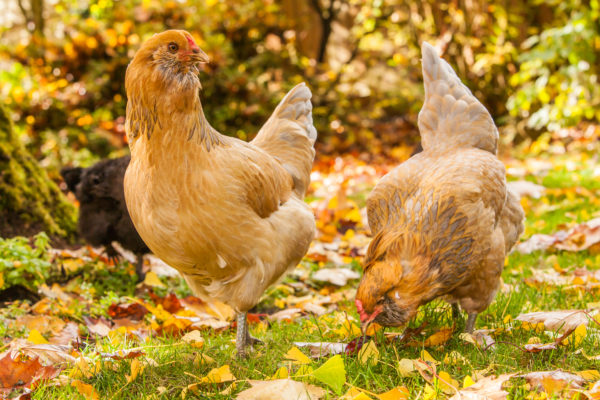
Autumn Chicken Coop
Later in the season, it is important to prepare for colder weather by providing extra bedding such as straw or hay in order to keep them warm. So make sure their coop is properly insulated and draft-free, as well as equipped with enough bedding material such as straw for your birds to snuggle up in.
It is also important to keep your chickens active during fall by providing them with toys or additional space if possible. Finally, make sure that you are providing artificial lighting in order to keep them moving throughout the day.
Feeding Chickens in Fall
Additionally, you may need to offer more food during this time as they are likely burning more calories in order to stay warm. Offer plenty of healthy treats such as mealworms or suet cakes to help them stay warm and healthy through the cooler months.
Autumn Egg Production
Fall brings cooler temperatures and more manageable conditions for hens, which can lead to increased egg production. It depends on your climate and region, but there is generally more available food for chickens during the fall harvest season.
However, shorter days mean that there is less time for hens to feed and roam, which can decrease egg production. Additionally, the risk of parasites and bacteria is still present due to warm temperatures and humidity.
The Importance of Keeping Hens Active
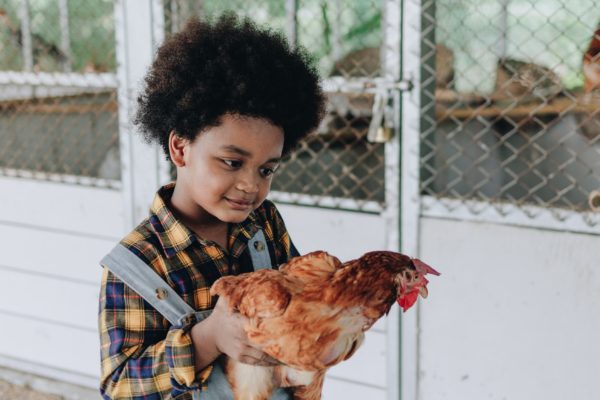
No matter the season, chickens are intelligent, curious creatures who need to stay active to remain healthy and to reach their egg-laying potential. Let’s look at why keeping chickens active matters, and some tips on how to create an active environment for your chickens.
The first thing reason is matters is maintaining their mental health. It can also help prevent boredom, which can lead to destructive behaviors such as feather picking or egg eating.
Of course, exercise impacts hens physically too. If chickens are not given the opportunity to be active, they may become lethargic and prone to illness. There’s no doubt that an active lifestyle is essential for chickens to stay healthy and happy!
Optimize Your Chicken Coop
The first step in creating an active environment for your chickens is to provide them with enough space. Chickens need room to move around and explore their environment. If your chickens are overcrowded or lack enough space, they may become bored and lethargic. Providing plenty of space for your chickens to roam around and explore is essential for encouraging activity.
Structures such as perches or platforms will give your chickens something interesting to explore and climb on. This provides mental stimulation and encourages activity. Toys and activities are also important for keeping chickens active. Scratching boards, swings, and tunnels can all provide entertainment for your chickens. Rotating these toys periodically will help keep your chickens engaged and prevent boredom.
Try Treats!
Treats are a great way to reward your chickens for being active. Offer treats such as mealworms or sunflower seeds when they explore their environment or participate in activities you provide. Chickens are intelligent animals capable of learning tricks and playing games with you.
Establishing a routine is also beneficial for chickens. Providing regular opportunities for activity, such as a daily scratching session or supervised free-range time, will encourage your chickens to stay active.
Lastly, encouraging natural behaviors is important for keeping chickens active. This includes providing access to dirt and grass, as well as allowing them to engage in natural behaviors such as dust bathing or foraging for food.
Conclusion
Raising chickens is a rewarding experience, no matter which season it is! With experience you will find that each season requires special consideration; from extra insulation in colder months, bug repellants in springtime, and ventilation during hot summer days – knowing how to best care for your flock can help ensure a rewarding experience throughout each phase of their life cycle.
It is important to consider the different factors that can affect egg production in order to ensure that your hens are producing eggs optimally throughout the year. Temperature, light, humidity, food availability, and parasite/bacteria levels should all be taken into account in order to maximize egg production. Additionally, allowing your hens to roam and feed as much as possible will help encourage egg production.
Taking these steps now will help guarantee you have healthy hens who produce delicious eggs all year round! Armed with knowledge, you’ll find that raising happy chickens through every season is easy and fun.

Recent Comments